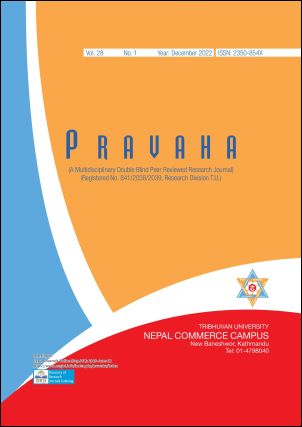Tension Between Obliteration and Regeneration in Walt Whitman’s Selected Poems
DOI:
https://doi.org/10.3126/pravaha.v28i1.57968Keywords:
obliteration, regeneration, transformation, divine, renewAbstract
This article explores the poet’s tension between his fear of environmental obliteration and a hope for spiritual regeneration in Walt Whitman’s poems This Compost. To do so, it applies ecocritical perspective which studies about the relationship of man with the biotic and a-biotic world in the literary text. Walt Whitman, in his poems, unfolds his reverence to the natural world. He celebrates the beauty of everyday life and nature. In these poems, he glorifies nature for its amazing ability to transform every dead, diseased and sick matter into regeneration. He does not see death as an end of life. He finds it as an event to renew life to a beautiful one. In the poems, his mind wrestles with his inner fear of getting in touch with the nature and in the second part he glorifies nature with the faith that it has an amazing capacity of renewing every ugly matter into divine materials for a new life. This study concludes that human being’s relationship with the earth is unbounded and maternal. It portrays how the poet’s fears and apocalyptic visions are ultimately silenced.
Downloads
Downloads
Published
How to Cite
Issue
Section
License
© Nepal Commerce Campus, TU
Authors are required to transfer their copyright to the Nepal Commerce Campus, TU.




